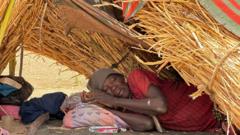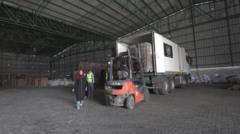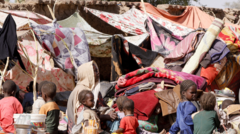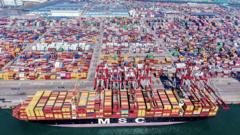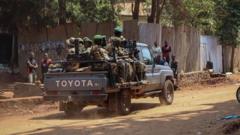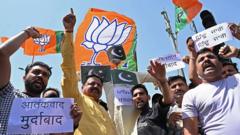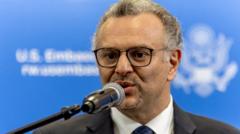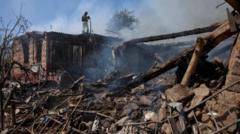The Democratic Republic of Congo and M23 rebels have reached a ceasefire agreement, as talks mediated by Qatar show promise for future peace.
Ceasefire Agreement Reached in DR Congo Amidst Ongoing Conflict with M23 Rebels
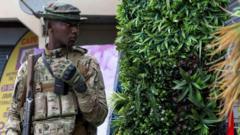
Ceasefire Agreement Reached in DR Congo Amidst Ongoing Conflict with M23 Rebels
Diplomatic Engagements in Qatar Lead to Historic Truce Agreement
The Democratic Republic of Congo (DR Congo) and the Rwandan-backed M23 rebels have brokered a ceasefire deal, halting fighting in the eastern regions until peace talks mediated by Qatar reach their conclusion. This agreement marks a significant moment, as it follows a marked escalation in conflict, resulting in approximately 7,000 fatalities since the year's start. After over a week of negotiations described as "frank and constructive," representatives from both factions announced their commitment to peace on Wednesday.
The truce is the latest development following a recent meeting between Congolese President Félix Tshisekedi and Rwandan President Paul Kagame in Doha, where both leaders expressed a unified stance towards an "unconditional" ceasefire. The conflict, which has deep roots and complexities, intensified in January as the M23 launched a significant offensive. This offensive included the capture of Goma and Bukavu, the two largest cities in eastern DR Congo, heightening regional tensions.
DR Congo accuses Rwanda of supporting the M23 by providing arms and military assistance, claims that Rwanda denies. Instead, Rwanda argues that its military presence is in self-defense against militias linked to the genocide in 1994. Furthermore, DR Congo asserts that Rwanda is illegally exploiting its mineral resources, to which Rwanda also responds with denial.
In a joint statement released by both parties on Wednesday, they pledged to give peace talks a chance and mutually agreed to an immediate halt in hostilities. They also denounced hate speech and called for local communities to support the peace process. This ceasefire is set to remain effective throughout the duration of the peace negotiations.
Although sources indicated that technical challenges threatened to disrupt the negotiations, Belgium's Foreign Affairs Minister Maxime Prevot hailed the truce as a "crucial step towards ending the violence." Qatar has stepped in to mediate after the rebels declined to participate in peace talks scheduled for Angola last month. Historically, the Congolese government has refrained from direct discussions with M23, labeling the group as "terrorist."
While the international community remains cautiously optimistic, the durability of this ceasefire remains uncertain, as previous agreements have frequently unraveled. The attention now shifts to the ongoing negotiations and the potential for long-term solutions to a conflict that has persisted for decades.
The truce is the latest development following a recent meeting between Congolese President Félix Tshisekedi and Rwandan President Paul Kagame in Doha, where both leaders expressed a unified stance towards an "unconditional" ceasefire. The conflict, which has deep roots and complexities, intensified in January as the M23 launched a significant offensive. This offensive included the capture of Goma and Bukavu, the two largest cities in eastern DR Congo, heightening regional tensions.
DR Congo accuses Rwanda of supporting the M23 by providing arms and military assistance, claims that Rwanda denies. Instead, Rwanda argues that its military presence is in self-defense against militias linked to the genocide in 1994. Furthermore, DR Congo asserts that Rwanda is illegally exploiting its mineral resources, to which Rwanda also responds with denial.
In a joint statement released by both parties on Wednesday, they pledged to give peace talks a chance and mutually agreed to an immediate halt in hostilities. They also denounced hate speech and called for local communities to support the peace process. This ceasefire is set to remain effective throughout the duration of the peace negotiations.
Although sources indicated that technical challenges threatened to disrupt the negotiations, Belgium's Foreign Affairs Minister Maxime Prevot hailed the truce as a "crucial step towards ending the violence." Qatar has stepped in to mediate after the rebels declined to participate in peace talks scheduled for Angola last month. Historically, the Congolese government has refrained from direct discussions with M23, labeling the group as "terrorist."
While the international community remains cautiously optimistic, the durability of this ceasefire remains uncertain, as previous agreements have frequently unraveled. The attention now shifts to the ongoing negotiations and the potential for long-term solutions to a conflict that has persisted for decades.

